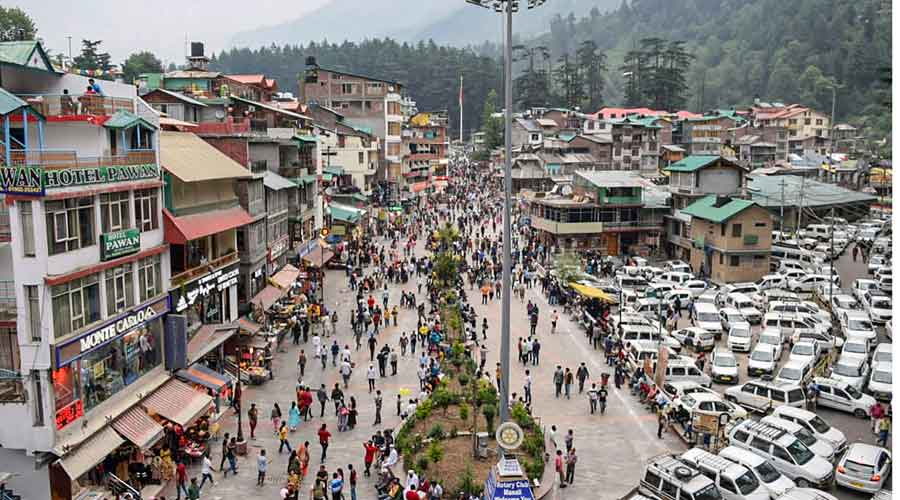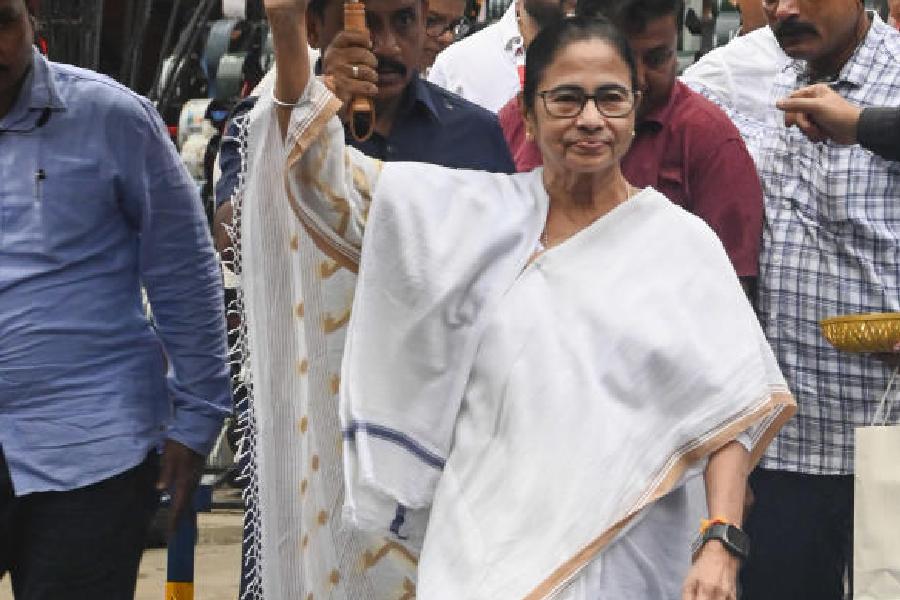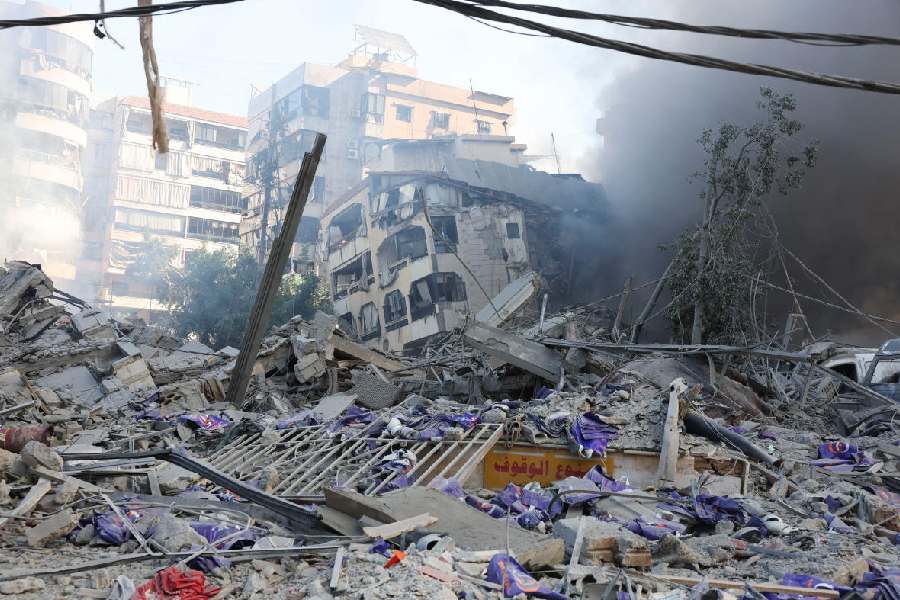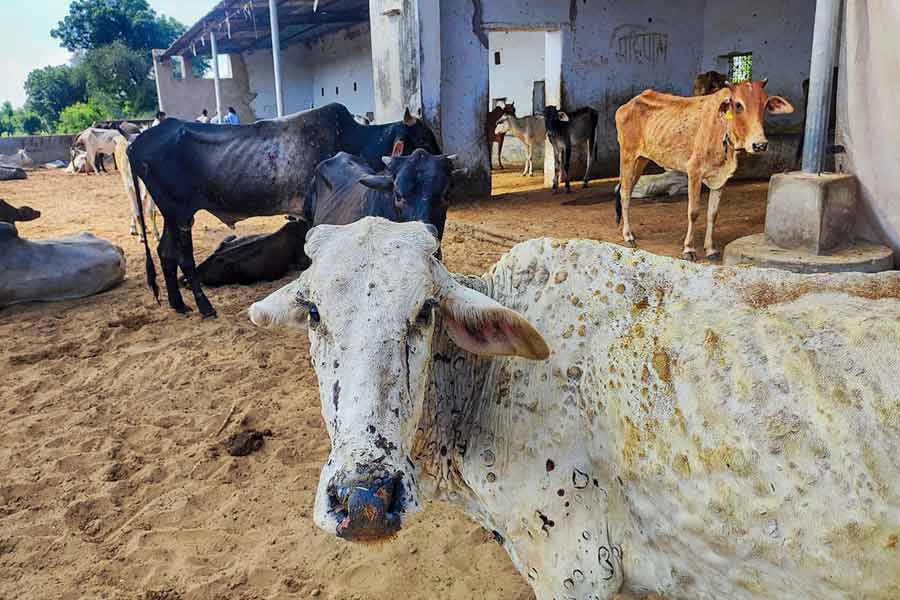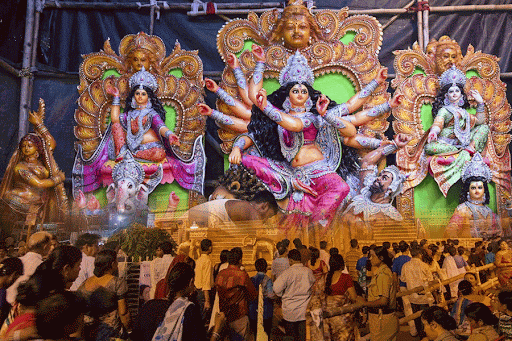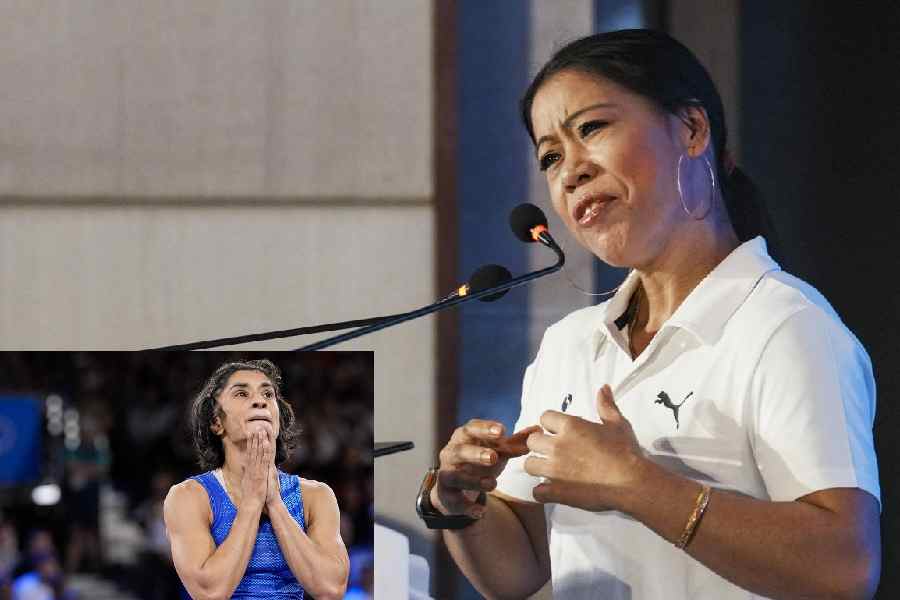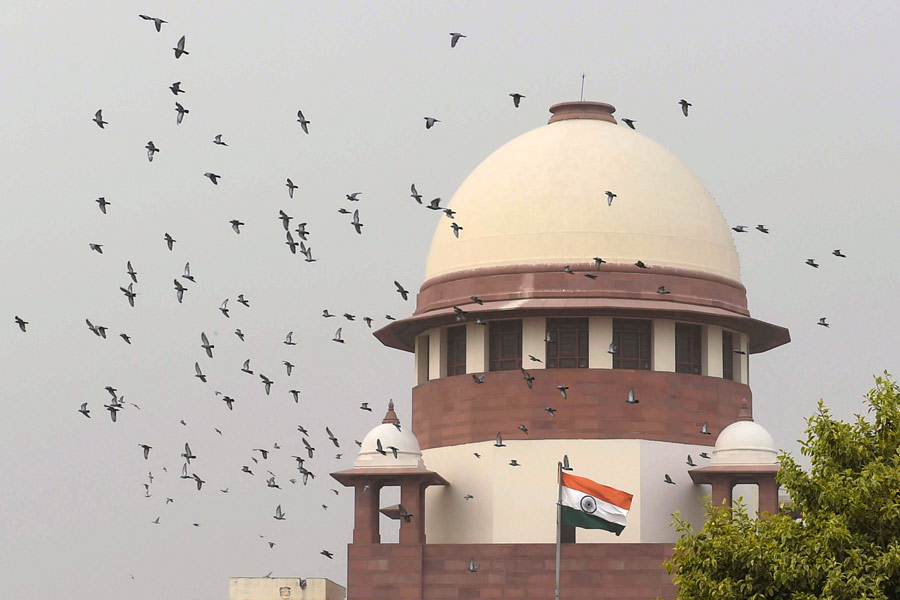The Union health ministry on Tuesday flagged concerns about what it said were “violations” of Covid-19 precautions by the public in markets and tourist sites amid an ebbing second wave but large outbreaks evident in 73 districts in 17 states.
Any laxity in precautions such as wearing masks or avoiding crowds could nullify the gains made so far through efforts at curbing the epidemic, said Lav Agarwal, joint secretary in the Union health ministry.
“People are walking in bazars and hill stations without physical distancing, without masks,” Agarwal told reporters, displaying images of crowds at markets in Delhi and Mumbai and at tourist sites in Manali, Shimla and Mussoorie.
“If restrictions have been eased, it doesn’t mean the virus has gone away. The virus is very much here. Laxity could allow the virus to spread again,” he said. “We’ve been saying right from the start that we need community participation in our response.”
India recorded 34,026 new Covid-19 cases on Tuesday after a near-steady decline in daily new infections over the past eight weeks from a peak of 414,188 new cases on May 7. The number of active patients has also declined to 450,000 from over 3.6 million in mid-May.
Only 91 districts have recorded more than 100 new daily cases over the past week, compared with 531 such districts in early May, although the number of daily tests done has been about 1.8 million since early May.
But 18 districts in Arunachal Pradesh, 10 in Rajasthan, nine in Manipur, seven in Kerala and six in Meghalaya are among the 73 districts in 17 states where the test positivity rate — the fraction found positive among those tested — is 10 per cent or higher, an indicator of large outbreaks.
The test positivity rate should ideally be below 5 per cent and as low as possible. A high rate implies that testing needs to be increased so that cases are detected early enough and isolated to prevent further spread.
“District-specific measures should continue to be guided by test positivity rates there,” said Balram Bhargava, director-general of the Indian Council of Medical Research. “If the rate is below 5 per cent, we can ease restrictions. If the rate goes beyond 10 per cent, we need to instate certain restrictive measures that have been shown to be effective. And we have to continue to maintain high testing levels.”
Over half of the 73 districts are in the northeastern states where, in some districts, the test positivity rates are extremely high — 98 per cent in Anjaw, 78 per cent in Tirap and 70 per cent in Upper Siang, all in Arunachal Pradesh, and 40 per cent at Ri Bhoi in Meghalaya. Health experts say such high levels point to the need for rapid increase in testing.
The ICMR’s National Institute of Epidemiology had earlier this year recommended the step-wise introduction of restrictions at the district level depending on three key criteria — the test positivity rate, trends in daily new cases and the occupancy rates of oxygen-supported and intensive care unit beds.

